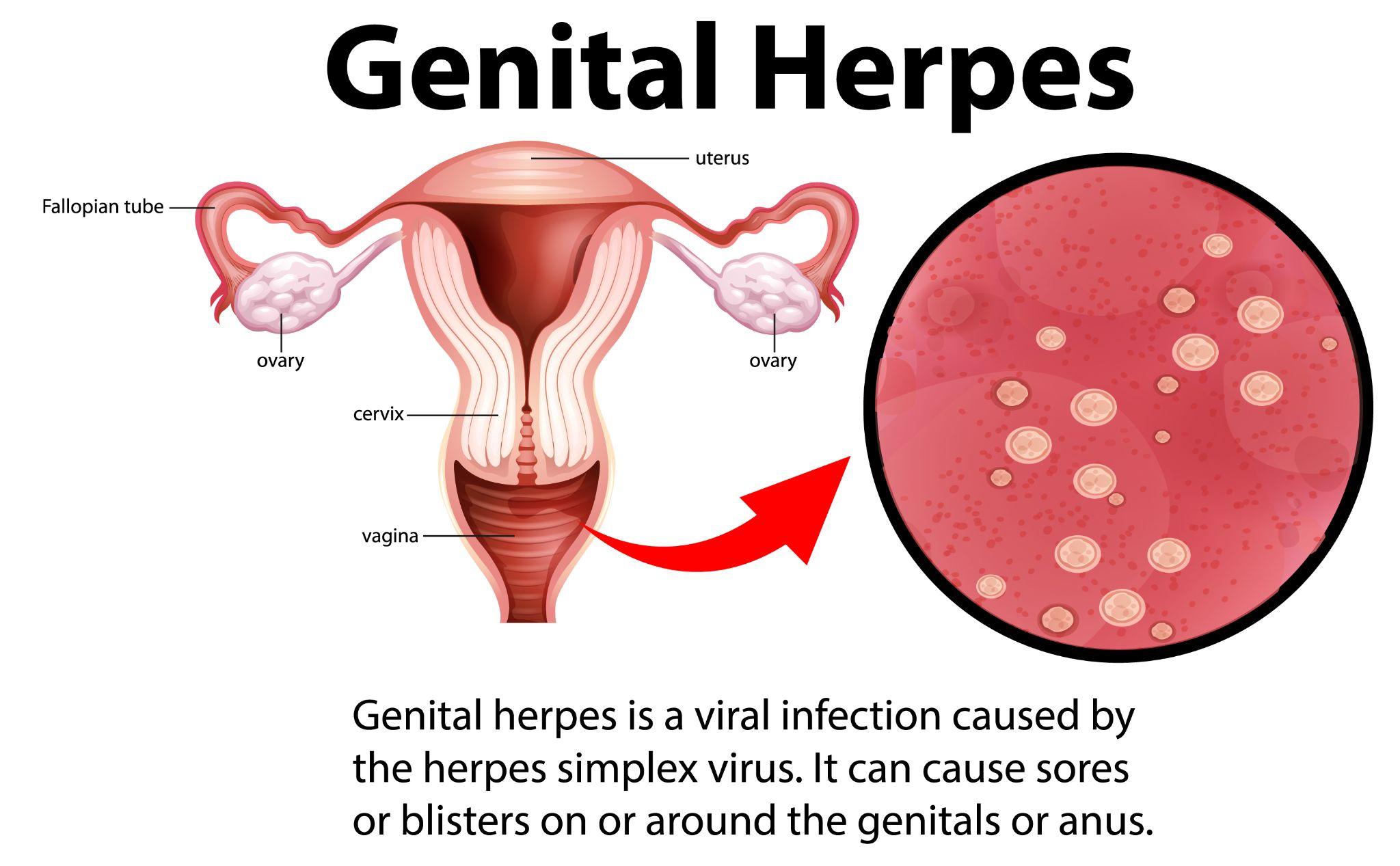Living with herpes can be a challenging experience, as it affects both the physical and emotional aspects of a person's life. Whether an individual has been recently diagnosed or has lived with the condition for years, managing herpes requires a comprehensive approach.
Keep reading to learn how to manage both the emotional and physical recovery from herpes, and when it might be necessary to take time off to prioritize your health.
Understanding Herpes

Herpes is a viral infection caused by the herpes simplex virus (HSV), which exists in two types: HSV-1 and HSV-2. HSV-1 typically causes oral herpes, while HSV-2 is the more common cause of genital herpes.
The infection is characterized by periodic outbreaks, where painful sores appear on the skin, often triggered by stress, illness, or other factors. Despite the widespread nature of herpes, it is often surrounded by stigma and misunderstanding, which can significantly affect an individual’s mental well-being.
The Physical Impact of Herpes
The physical symptoms of herpes can be difficult to manage. Outbreaks tend to occur in cycles, with periods of active outbreaks and symptom-free intervals. The sores and blisters caused by herpes can be painful and uncomfortable, making daily activities challenging.
In addition to managing these physical symptoms, it is essential to adopt treatment strategies that can help reduce the severity and frequency of outbreaks.
● Antiviral Medications: These are the primary form of treatment for managing herpes outbreaks. Medications like acyclovir, valacyclovir, and famciclovir help reduce the duration and severity of outbreaks. They can also lower the risk of transmitting the virus to others.
● Topical Treatments: Over-the-counter creams or ointments may be used to soothe the pain and reduce discomfort associated with active outbreaks.
● Lifestyle Adjustments: Stress, lack of sleep, and poor nutrition can trigger outbreaks. Managing stress, getting adequate sleep, and maintaining a healthy diet can help manage herpes symptoms and reduce flare-ups.
The Emotional Toll of Herpes

In addition to the physical symptoms, herpes can have a significant emotional impact. The stigma associated with the condition often causes individuals to feel isolated, ashamed, or embarrassed. This emotional strain can negatively affect relationships, social interactions, and overall mental health.
● Self-Esteem and Body Image: Herpes outbreaks can lead to feelings of embarrassment, particularly when they occur in visible areas like the face or genital area. This can impact how an individual feels about their body and self-worth.
● Relationship Strain: Being diagnosed with herpes can strain relationships. There may be concerns about transmission, fear of rejection, or difficulty discussing the condition with partners. Open communication and support from loved ones can help alleviate these concerns.
● Mental Health: The emotional toll of managing a chronic condition like herpes can lead to anxiety, depression, or feelings of isolation. Seeking therapy or counseling can provide emotional support and strategies to cope with the psychological challenges of living with herpes.
Knowing When to Take Time Off

It is important for individuals with herpes to recognize when they need to take time off from work or school to focus on their recovery. Managing herpes involves balancing physical treatment, emotional support, and self-care.
In most cases, you do not need to take time off from work during a herpes flare-up, especially if you feel well enough to perform your duties. However, it depends on a few factors:
You might consider taking time off if:
● You have severe symptoms (e.g. fever, body aches, fatigue) that affect your ability to work.
● You’re in a physically demanding job, and the pain or discomfort makes it hard to function.
● You’re experiencing emotional distress or anxiety that impacts your focus or well-being.
● Your job involves close physical contact, especially if you work in healthcare, where there may be protocols around contagious skin conditions.
In general:
● Herpes (oral or genital) is not spread through casual contact or typical workplace interactions.
● Antiviral medications can help shorten outbreaks and reduce symptoms, helping you feel better faster.
If you're unsure, it’s always a good idea to talk to a healthcare provider, especially during your first outbreak or if symptoms are more intense than usual.
How to Manage Recovery

Managing both the physical and emotional aspects of herpes requires a multi-faceted approach. Here are a few practical steps to aid in the recovery process:
● Adhere to Treatment Plans: Consistently following the prescribed antiviral medications and topical treatments can help manage outbreaks and reduce their frequency.
● Focus on Stress Reduction: Engaging in activities like yoga, meditation, deep-breathing exercises, and mindfulness can help reduce stress, which is a common trigger for herpes outbreaks.
● Seek Emotional Support: Talking to a counselor, therapist, or support group can help manage the emotional toll of living with herpes. Open communication with partners and loved ones is essential for maintaining healthy relationships and reducing the stigma.
● Maintain Healthy Habits: A well-balanced diet, regular exercise, and adequate sleep are key to boosting the immune system and promoting overall well-being.
Living with herpes involves managing both the physical and emotional challenges of the condition. While physical recovery often involves antiviral medications and lifestyle adjustments, emotional recovery requires addressing the stigma, maintaining a positive body image, and seeking mental health support.
In some cases, it is necessary to take time off work or school to focus on healing. By taking proactive steps, individuals can manage herpes effectively and lead fulfilling lives.
My Dr’s Note Supports Taking Time Off Work
My Dr’s Note provides doctor’s notes for illnesses that require time and proper care. Whether you need a doctor's note for work or a doctor's note for school, their services offer online doctor's notes to ensure you receive the time off you need to focus on recovery.
Buy a doctor's note online or request a certification for FMLA today, and take control of your health and well-being.
Contact My Dr’s Note now to get a real doctor's note online for work or school!
About the Author
The author is a health writer with over 10 years of experience in writing about chronic illnesses and health management.



You must be logged in to post a comment.